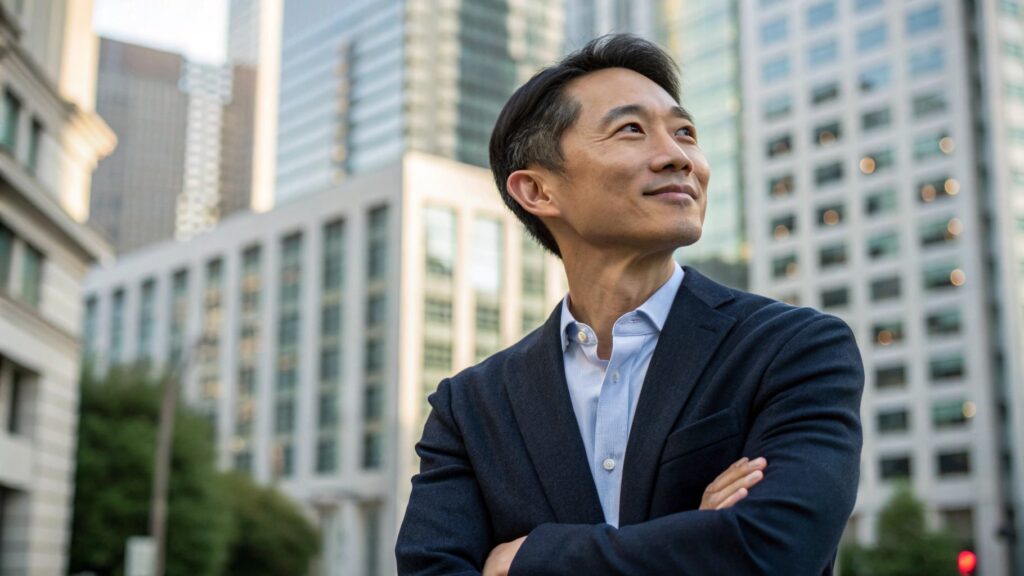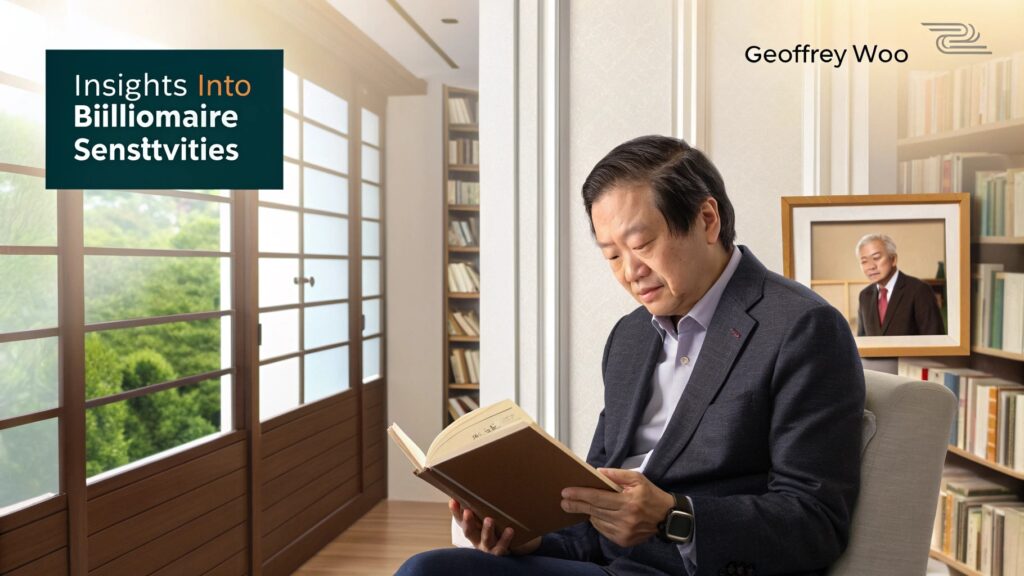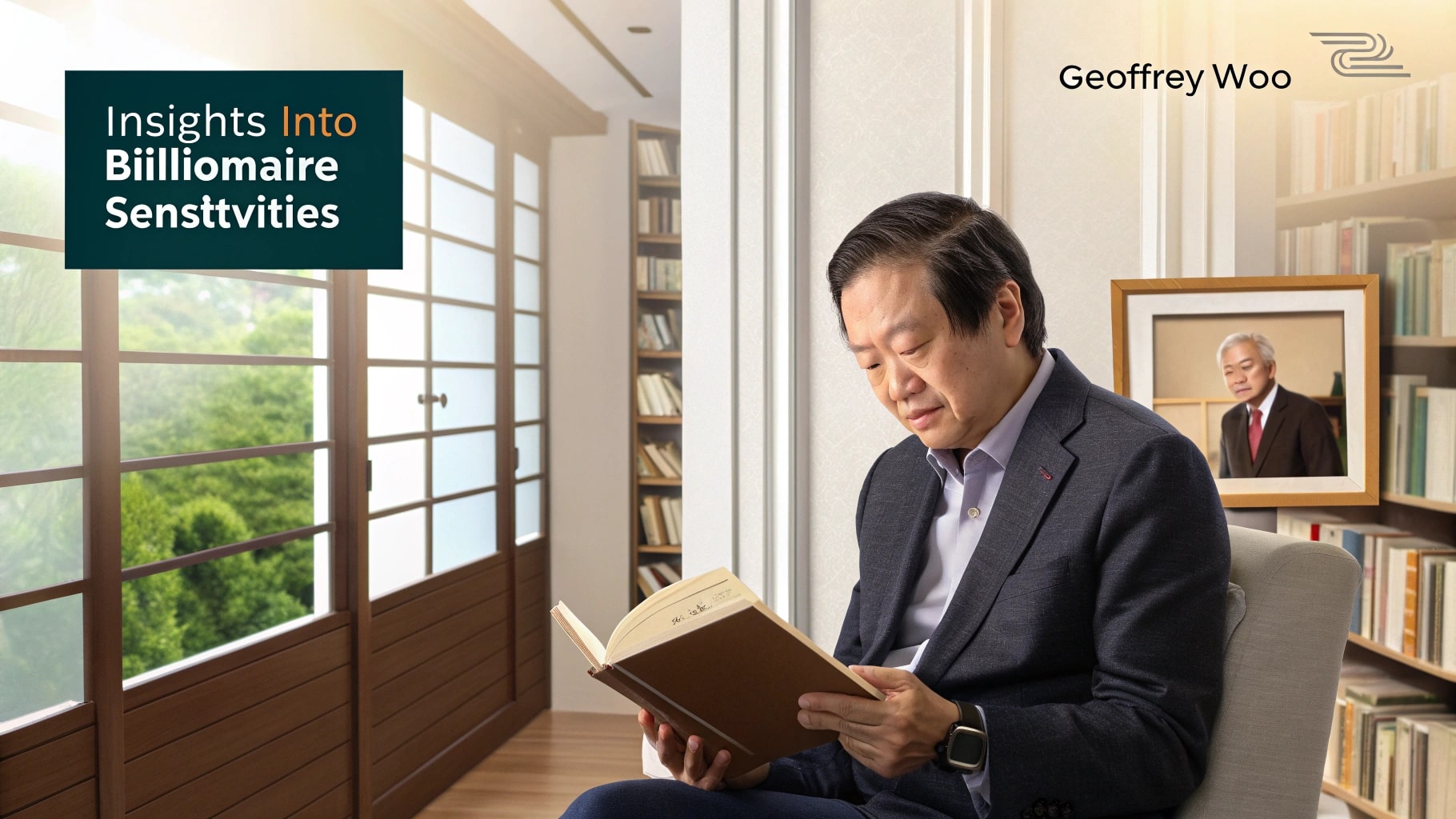Billionaires are often seen as people who live a perfect life full of luxury, power, and success. However, behind the glamorous image, their lives come with unique pressures and emotional challenges. Geoffrey Woo, a well-known entrepreneur and biohacking expert, has studied how billionaires react to these pressures. He explores how their wealth, decisions, and expectations shape their sensitivities. These insights not only reveal the hidden side of billionaires but also give lessons to entrepreneurs and investors who want to understand success and its challenges. In this article, we will discuss Geoffrey Woo’s perspective, billionaire sensitivities, real-life examples, and lessons that can be applied in business and personal growth.
Who is Geoffrey Woo?
Geoffrey Woo is an American entrepreneur, investor, and researcher who is passionate about human performance and longevity. He co-founded HVMN, a company that creates supplements, ketone drinks, and tools designed to enhance brain and body performance. With a background in computer science and biotechnology, Woo has positioned himself as an innovator at the intersection of health, technology, and business.

Woo’s work is centered around biohacking, a concept that focuses on making small lifestyle and health changes to boost physical and mental abilities. Through his research, writings, and podcasts, Woo often shares insights about how people, especially the ultra-wealthy, deal with stress, pressure, and the burden of big decisions. His analysis of billionaires is not only about money but about how they think, feel, and act under constant responsibility. Entrepreneurs around the world find his ideas valuable because they bridge science with business psychology.
Understanding Billionaires’ Sensitivities
At first glance, it may seem that billionaires live problem-free lives. But Geoffrey Woo explains that being wealthy brings a unique set of emotional and psychological challenges. These sensitivities shape their personalities, decisions, and even relationships. Some of the common billionaire sensitivities include:
- Decision Fatigue: Billionaires make dozens of high-stake choices every day. Constant decision-making drains their energy and can result in mental fatigue or poor judgment.
- Isolation: The gap between their wealth and ordinary life creates emotional distance. Many billionaires find it hard to form genuine friendships, leading to loneliness and trust issues.
- Fear of Loss: Even though they have enormous wealth, the fear of losing status, money, or influence keeps them cautious and often risk-averse.
- Legacy Pressure: Billionaires often feel pressured to create a lasting impact. The constant drive to leave behind a legacy can cause stress, anxiety, and overcommitment.
These sensitivities highlight that money alone does not erase human challenges. Instead, it adds new layers of pressure that most people cannot imagine. Understanding these factors is essential for those who study leadership, investments, and high-performance psychology.
Geoffrey Woo’s Insights on Billionaires
According to Geoffrey Woo, billionaires cope with these sensitivities by focusing on self-optimization. He emphasizes that wealth alone cannot protect a person from stress, but a strong body and mind can. Woo suggests three main areas for billionaires, entrepreneurs, and professionals:
- Mental Resilience: Learning coping mechanisms to handle stress and unexpected challenges is crucial. Billionaires must train themselves to stay calm under pressure and make rational choices.
- Physical Health: A healthy body directly supports better decision-making. Exercise, proper diet, and biohacking strategies are tools many billionaires use to stay sharp.
- Continuous Learning: The business world changes rapidly. Billionaires who keep learning and adapting are more capable of handling sensitivities and leading effectively.
Woo believes that focusing on these areas allows billionaires to transform their sensitivities into strengths. Interestingly, these lessons are not limited to the wealthy. Even regular entrepreneurs and professionals can apply them to manage their own challenges better.
Case Studies and Examples
Real-life examples of billionaires help us understand Geoffrey Woo’s insights in action:
- Elon Musk: Founder of Tesla and SpaceX, Musk is famous for his intense work schedule and bold ideas. However, he has openly spoken about the stress, emotional pressure, and sleepless nights that come with managing multiple billion-dollar companies. His sensitivity to criticism and market pressure shows how even visionary leaders face emotional struggles.
- Jeff Bezos: Amazon’s founder has often emphasized the need for long-term thinking and patience. He is sensitive to short-term criticism but trains himself to focus on future outcomes. This reflects Woo’s principle of resilience and continuous learning.
- Warren Buffett: Known as the “Oracle of Omaha,” Buffett highlights emotional stability as a key factor in successful investing. His calmness during market volatility shows how billionaires manage sensitivities through patience and rational thinking.
These examples prove that behind every success story lies a mix of strengths and sensitivities. Billionaires are not superhuman; they simply learn to channel their sensitivities productively.
Implications for Entrepreneurs and Investors

Studying billionaire sensitivities can offer important lessons for everyday entrepreneurs and investors. Geoffrey Woo’s insights are particularly useful for those who want to grow in business while staying balanced.
- Emotional Intelligence: Entrepreneurs must recognize and control emotions during critical moments. Understanding emotional triggers can help avoid poor decisions.
- Risk Management: Like billionaires, ordinary investors also fear loss. Learning to take calculated risks is essential for growth.
- Work-Life Balance: Success is meaningless if it leads to burnout. Entrepreneurs should aim for balance, ensuring their health and relationships are not sacrificed for financial gains.
- Learning from Failures: Billionaires often treat failures as learning opportunities. Entrepreneurs should also adopt resilience and adaptability.
By applying these insights, ordinary people can handle stress better, make smarter decisions, and create sustainable success in their own lives.
Criticisms and Controversies
Although Geoffrey Woo’s analysis is fascinating, it has faced criticism. Some argue that his focus on individual psychology ignores systemic factors like economy, politics, and inequality that also affect billionaire behavior. Critics also note that biohacking techniques, supplements, and expensive lifestyle changes may not be accessible to the general public.
Another point of debate is whether billionaires’ sensitivities are truly unique or just exaggerated versions of common human experiences. While Woo provides scientific and psychological explanations, skeptics believe that wealth often amplifies normal challenges rather than creating entirely new ones. Still, Woo’s work offers a practical framework to understand high-performance individuals, even if it does not explain everything.
Conclusion
Geoffrey Woo’s exploration of billionaires’ sensitivities reveals that extreme wealth does not guarantee freedom from emotional challenges. Instead, billionaires struggle with decision fatigue, fear of loss, isolation, and legacy pressure. Woo argues that by focusing on mental resilience, physical health, and continuous learning, billionaires can better manage their unique challenges.
For entrepreneurs and investors, these lessons are powerful reminders. Success is not only about money but about building the capacity to handle pressure, uncertainty, and responsibility. Geoffrey Woo’s insights encourage everyone to view sensitivities not as weaknesses but as opportunities for growth and balance.
FAQs
What are common sensitivities of billionaires?
Billionaires often face decision fatigue, fear of loss, isolation, and pressure to leave behind a lasting legacy.
How can Geoffrey Woo’s insights help entrepreneurs?
Woo’s lessons on mental resilience, risk management, and balance help entrepreneurs stay productive and make better decisions under stress.
Are these insights applicable to ordinary investors?
Yes, regular investors can also apply these principles to manage emotions, avoid impulsive decisions, and focus on long-term success.
Do all billionaires experience the same sensitivities?
Not exactly. While patterns are common, each billionaire’s experiences depend on personality, industry, and personal values.
Is biohacking necessary to manage sensitivities?
Not always. Biohacking is one method, but habits like exercise, sleep, and mindfulness are equally effective and accessible to most people.
Related Post:




